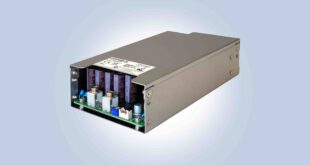As augmented reality (AR) technology continues to improve, it will become a gamechanger for utilities companies, bringing them significant cost and time savings. As a result of this, it continues to be a source of investment for companies in the energy and utilities sector, says GlobalData. The data and analytics company notes that AR will be adopted by nearly every major utility firm to deal with equipment maintenance and employee training. Global enterprise AR revenues are set to grow from $1 billion in 2021 to $77 billion in 2030.
According to GlobalData’s report Augmented Realty (AR) in Power- Thematic Research, an increasing number of power equipment manufacturers are utilising AR to improve operations in workforce training and assembling as part of this transformation. AR improves the speed of the assembly process faster and reduces potential error. The use of AR in early product development by power equipment manufacturers allows designers to iterate concepts virtually and more flexibly from concept to prototype without incurring additional prototyping costs.
Daniel Clarke, Analyst on the Thematic Research Team at GlobalData, comments: “While only a budding technology at present, AR will soon become essential for all power operators. Currently, only core power operators have adopted the technology which has allowed for key time and cost savings. A specialist AR vendor, which was a primary case study in the report, noted that their technology had helped a power company save $23 million with immediate effect and has ensured that these companies save on travel costs.”
Companies in the energy sector are dealing with similar challenges: equipment maintenance, Environmental, Social and Governance (ESG), training, health and safety, an ageing workforce, and COVID-19. Due to its digital nature, AR technology allows for remote experts to speak to on-site employees, which can shorten equipment downtime, improve training and health and safety, and help companies deal with these challenges. Companies that have started adopting AR include EDF, Enel, Fortum, General Electric, Iberdrola and Siemens Gamesa, and many more.
Clarke continues: “The quality of the tailored hardware and software products offered by specialized AR vendors to energy companies should not be ignored. Power companies that have not yet adopted AR into their business strategy will be lagging behind their competitors. The energy sector is unique in that equipment downtime can cause significant damage to the reputation of an energy company as customers will be rightly displeased when lights go out or bills go up. Therefore, the improvements in speed-related to equipment maintenance are notable.”
 Engineer News Network The ultimate online news and information resource for today’s engineer
Engineer News Network The ultimate online news and information resource for today’s engineer




